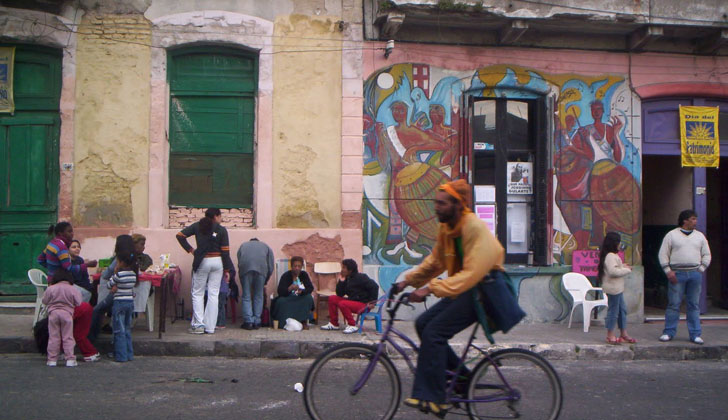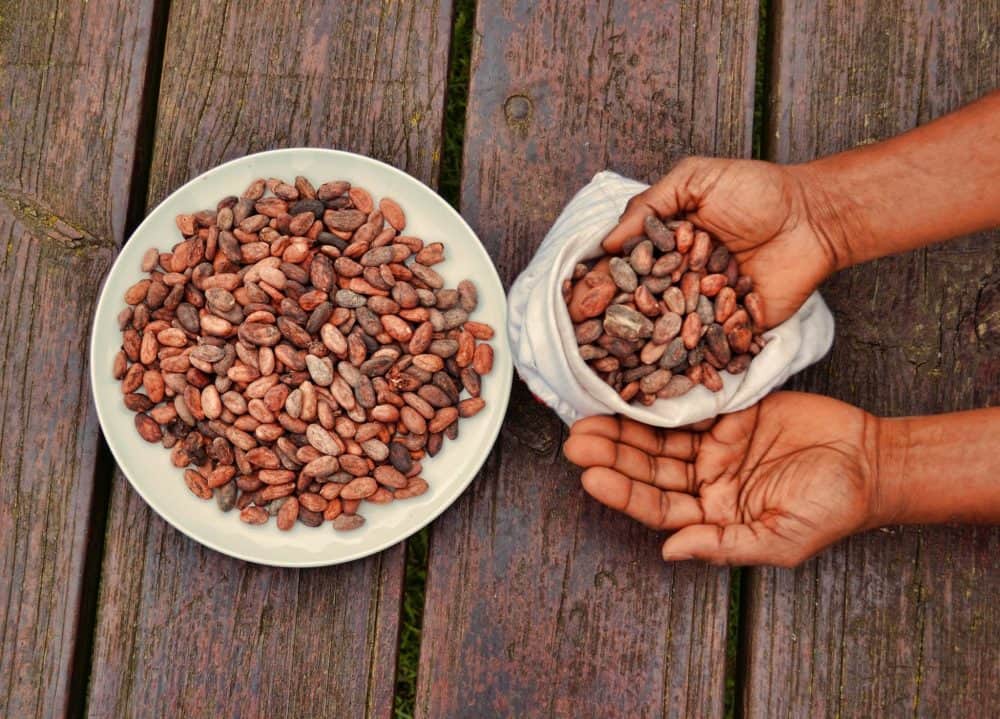every Panamanian i've ever met was black
I think he's reaching, 65% out of 3,4 million... that's too much
every Panamanian i've ever met was black
True. But who knows? I haven't been to Panama personallyI think he's reaching, 65% out of 3,4 million... that's too much

Their fight has been a struggle against radical invisibility, because they have been denied the most basic thing: the elemental existence in the census. As researcher Martin Hoppenhayn from the ECLAC (Economic Commission for Latin America and the Carribbean) has said, “There is a vicious circle with the issue of the Afro-descendants in Chile, meaning that because there [is] no data of any kind of survey related to the socioeconomic situation, then there is no quantitative evidence to serve as a basis, thus without this evidence there will be no awareness and, consequently there is no urgency and thus there is no inclusion.
It's been almost two years of negotiations with the current government to include a question on self-identification of people of African descent within Chilean territory. There have been countless meetings with various ministerial bodies […] when you sit down to talk with representatives of the INE you realize they do not have much information on this issue and only respond negatively arguing there are technical issues for the inclusion of the question.
That part of whitening of Chile has to do with [the celebration of] the centenary of the Republic. Before the 100-year anniversary, it was said that the president ordered the completion of an autobiographical study: Who are we Chileans? 100 years after having become independent from the Spanish rule. And in this autobiography […] this Chile is a country of whites. I think that part was vital in the whitening of [our history] and it is a whitening that goes beyond the phenotypical aspect, it is also a cultural whitening.
Today we must recognize that there is [also] a new diaspora in the [African] presence […] that of the Afro-migration. Afro-Colombians, Afro-Dominicans. We want to show that this Chile has changed. And the 2017 census was a tremendous opportunity to [demonstrate this].
The only tribal people whom INE does not recognize is us, the Afro-descendants […] We are Afro-Chilean, and we want inclusion.




MES DE LA AFRODESCENDENCIA
Pobreza en la población afro uruguaya bajó casi 34% en nueve años
El porcentaje de personas afro uruguayas bajo la línea de pobreza pasó de 55,4% en 2006 a 21,8% en 2015, según una encuesta presentada este jueves en el evento “Quilombo 2016” en el que se celebró el mes de la afrodescendencia.
08 de julio de 2016 a las 18:05 hs

Foto con fines ilustrativos: redbarriosurypalermo.blogspot.com.
En el marco de la celebración del mes de la afrodescendencia, este jueves se llevó a cabo un evento denominado “Quilombo 2016” en el que se discutió sobre el racismo institucional. Allí, el Instituto Nacional de Mujeres y el Instituto Nacional de Estadísticas (INE) presentaron en conjunto una encuesta sobre la situación económica de las personas afro uruguayas desde 2006 hasta el año pasado.
En 2006, el porcentaje de personas afro uruguayas que residían en hogares en situación de pobreza era de 55,4%. En 2010, la cifra bajó a 36,1% y, en 2015, la población afro uruguaya que vivía en situación de pobreza era de 21,8%.
Según el último Censo realizado en Uruguay en 2011, el 8,1% de los 3.4 millones de habitantes de Uruguay se considera afrodescendiente. De estos, la mitad vive en Montevideo y la mitad en el Interior, especialmente en las zonas de frontera con Brasil.
Políticas públicas
Miguel Pereira, integrante de la división de Derechos Humanos de la dirección nacional de Promoción Sociocultural del Ministerio de Desarrollo Social (MIDES), dijo que Uruguay “ha avanzado” en la implementación de políticas públicas para afrodescendientes, hecho que se demuestra en los indicadores sociales, económicos y culturales.
“Hoy los índices de pobreza han bajado, lo que seguimos reafirmando es el tema de la brecha racial existente entre la población afro con el resto de la población, eso no lo hemos podido revertir, y nuestras políticas están enfocadas a reducir esta brecha“, dijo.
Por su parte, la ministra de Educación y Cultura, María Julia Muñoz, afirmó que la temática de la afrodescendencia está “tomando cada vez más protagonismo” en la agenda pública del país, y llamó a “multiplicar los esfuerzos” contra todo acto de discriminación.
“La diversidad y la igualdad son el anverso y el reverso de una misma moneda que deben ser preservados y desarrollados. La educación y la cultura trasmiten ideas y valores y nociones del mundo y allí se apunta a fortalecer, desde etapas tempranas, en los niños el sentido del respeto, el afecto y la valoración“, afirmó.
Basically black poverty has decline substantially in UruguayPobreza en la población afro uruguaya bajó casi 34% en nueve años - Noticias Uruguay LARED21
Lol I couldn't find this in English

Basically black poverty has decline substantially in Uruguay



